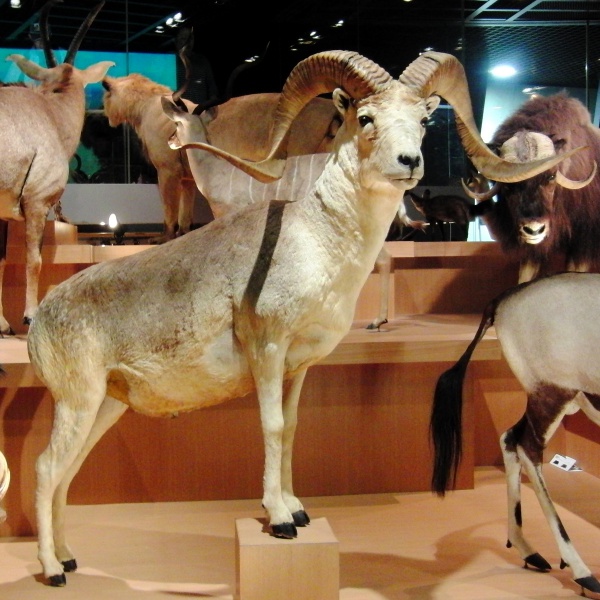Facts About Argali, Arkhar
The argali, also known as the mountain sheep, is a captivating wild sheep species native to the highlands of western East Asia and adjacent regions. They hold the distinction of being the largest wild sheep, with males (rams) significantly outweighing females (ewes). Among the various subspecies, the Pamir argali, commonly known as the Marco Polo sheep, is noted for its impressive size.
Argali inhabit a wide range that stretches from central Kazakhstan to China's Shanxi Province, and from the Altai Mountains down to the Himalayas. They flourish in mountainous terrains, residing at elevations between 300 and 5,800 meters. These social animals live in sex-segregated herds except during the breeding season, when males use their formidable horns to compete for mates.
Argali reach reproductive maturity at around two to three years old. Mating occurs in the fall, with lambs typically born in late March or April. Ewes usually give birth to a single lamb, although twins are occasionally born. The gestation period lasts about 165 days, and lambs grow rapidly, reaching roughly ten times their birth weight by their first birthday.
The diet of argali primarily consists of grasses, sedges, and forbs, which vary with elevation. They consume large amounts of food daily and require water, often traveling significant distances to find it. Argali face predation threats from wolves, snow leopards, leopards, and eagles.
Regrettably, argali are considered a near-threatened species due to trophy hunting, use in traditional medicine, and competition with domestic livestock. Their populations have disappeared from certain areas, adversely affecting predator numbers in some regions. In Pakistan-administered Kashmir, argali are listed as endangered.
These magnificent creatures play an essential role in their ecosystem, and their conservation is crucial for maintaining the balance of their natural habitats.

 China
China